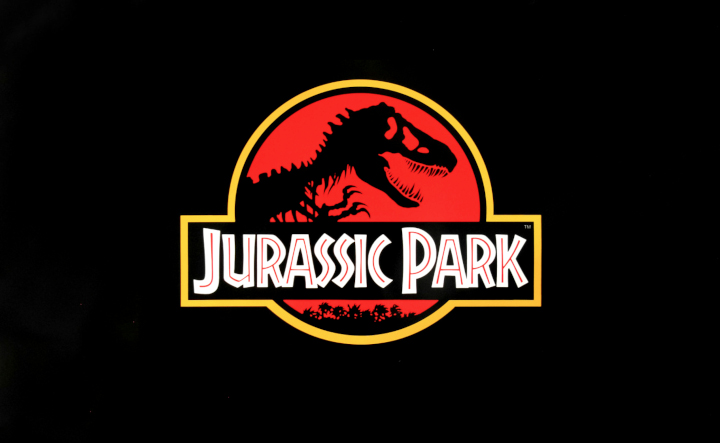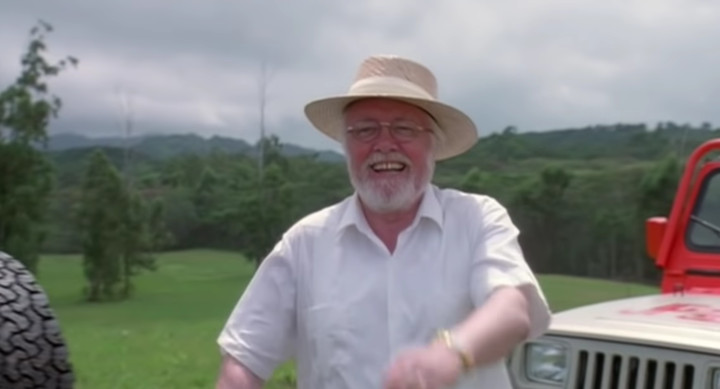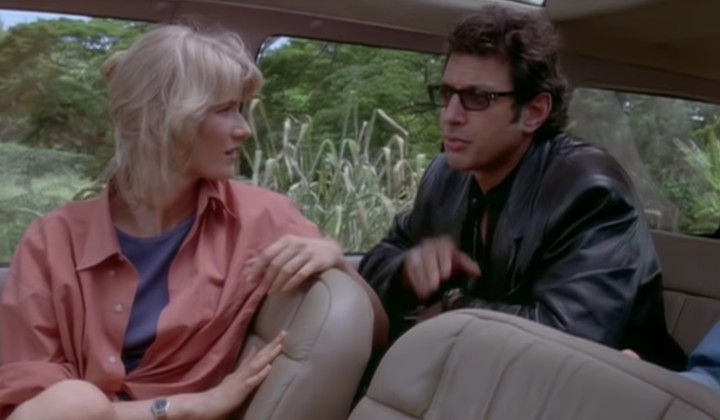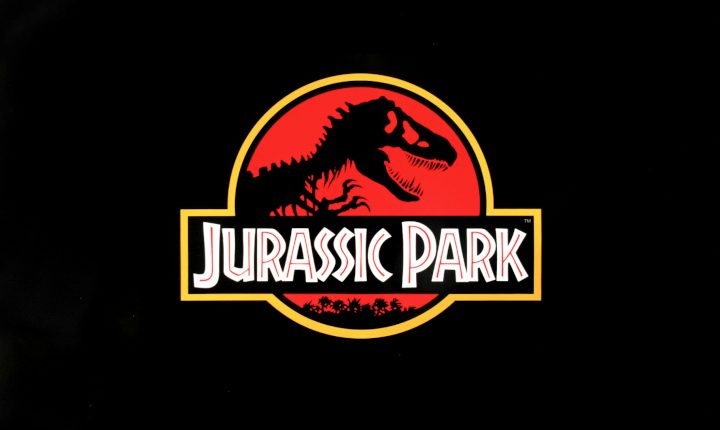
The novel Jurassic Park by Michael Crichton was published in 1990. According to the website SoftSchools, Stephen Spielberg was so anxious to get his hands on the film rights that he purchased them for $1.5 million before the book had even come out. Don’t worry about Spielberg’s pocketbook; he made his money back and then some. Jurassic Park was, at one point, the highest grossing film of all time, and it’s on the short list of films to have grossed over $1 billion.
I don’t remember how old I was when I first read the Jurassic Park novel, but I’m sure I must have seen the movie first. So I estimate I was in my early teens — at some point in 1993 or 1994 — when I picked up the book.
Jurassic Park is one of those odd books that I love as much as an adult as I did as an early teen. I go back to it every few years or so, and I’ve read it more than a dozen times, yet I never get tired of it. Even after having completed a bachelor’s in literature (and acquiring a taste for the hoity-toity literary classics), I still go back to Jurassic Park and find it an enjoyable read.
There are two main things that make it such an excellent book: The pacing is absolutely perfect, and the plotting is unbelievably good. The dinosaur premise is cool too, but I’ve read other books that clashed humans and dinosaurs that weren’t nearly as engrossing as Jurassic Park. The joy of this novel is that it’s a compelling thrill ride from start to finish that weaves a complex web of narrative threads — all of which come together for an extremely satisfying dénouement.
I could go on and on about how satisfying the plot of Jurassic Park is, but I’ll cut it short and say that what causes the disaster at the park isn’t just one thing, but a whole bunch of things that all converge in one short-but-tragic period of time. It makes all of it seem so much more plausible than “a storm knocked out the power,” which is something John Hammond and company should have been extremely well-prepared for. And speaking of Hammond, his fate in the book is so much more satisfying — and rich with symbolism — than what happens to him in the movie.

But, having read this book numerous times, there are some really weird parts that people often overlook. For example, do you remember how dark the ending is? Basically, there’s a small group of survivors of the incident — Alan Grant, Ellie Sattler, Tim and Lex (the kids), Robert Muldoon, and Donald Gennaro (the lawyer). If you’ve only ever seen the movie, then two of those names will probably surprise you; Muldoon and Gennaro had two of the most memorable deaths in the film.
Anyway, after they get off the island, they’re whisked off to some hotel in Costa Rica, under close watch by the government. Alan Grant starts getting a little nervous, and he asks about what’s going to happen to them.
“And we’re being kept here because…”
Guitierrez shrugged. “The government is worried. Perhaps there are more animals. More trouble. They are feeling cautious.”
And then later:
Grant said, “You’re telling me we’re not going anywhere?”
“None of us is going anywhere, Dr. Grant,” Guitierrez said, smiling. And then he turned, and walked back toward the entrance of the hotel.
This is the ending of the book. That paragraph where Guitierrez smiles is the novel’s final paragraph. So, after the traumatic events of the book, these people are going to be under some vague government lockdown for god knows how long? It’s a hard pill to swallow after reading about how much they went through to survive on the island. Their futures are filled with the slow workings of bureaucracy rather than being reunited with their families, friends, and careers.

Even weirder is that if you go back and look at that short list of survivors, Ian Malcolm isn’t among them. The book makes it pretty clear that Malcolm dies near the end, though there’s just a teensy bit of wiggle room. Malcolm’s last words in the book are, “Because… everything looks different… on the other side” (384). Later, when the survivors are boarding the military helicopter that will whoosh them off to safety (and endless bureaucracy), Grant asks about Malcolm’s fate, and “Muldoon shook his head” (396). It’s even mentioned that the Costa Rican government “… did not even permit the burial of Hammond or Ian Malcolm” (398).
Yet, in the novel’s sequel, The Lost World, Ian Malcolm is very much alive. It’s a startling revelation that’s never really explained. But really, The Lost World feels like a rough draft for most of its duration, right up to the last 50 pages, which actually feel kind of well-developed. I’ve always wondered if The Lost World were written to fulfill some kind of contractual obligation, or if Michael Crichton had cut those last 50 pages from Jurassic Park and needed an excuse to use them so he wrote a whole book to give them context. Either way, The Lost World is kind of a mess.
But Jurassic Park is endlessly readable, and endlessly enjoyable. I get something new from it every time I revisit it. There is not a single book I’ve read more times, and I’ve never once finished a re-read and thought, “That was a waste of time.” Screw Hawthorne and Hemmingway and Steinbeck; Jurassic Park by Michael Crichton is my literary constant.
